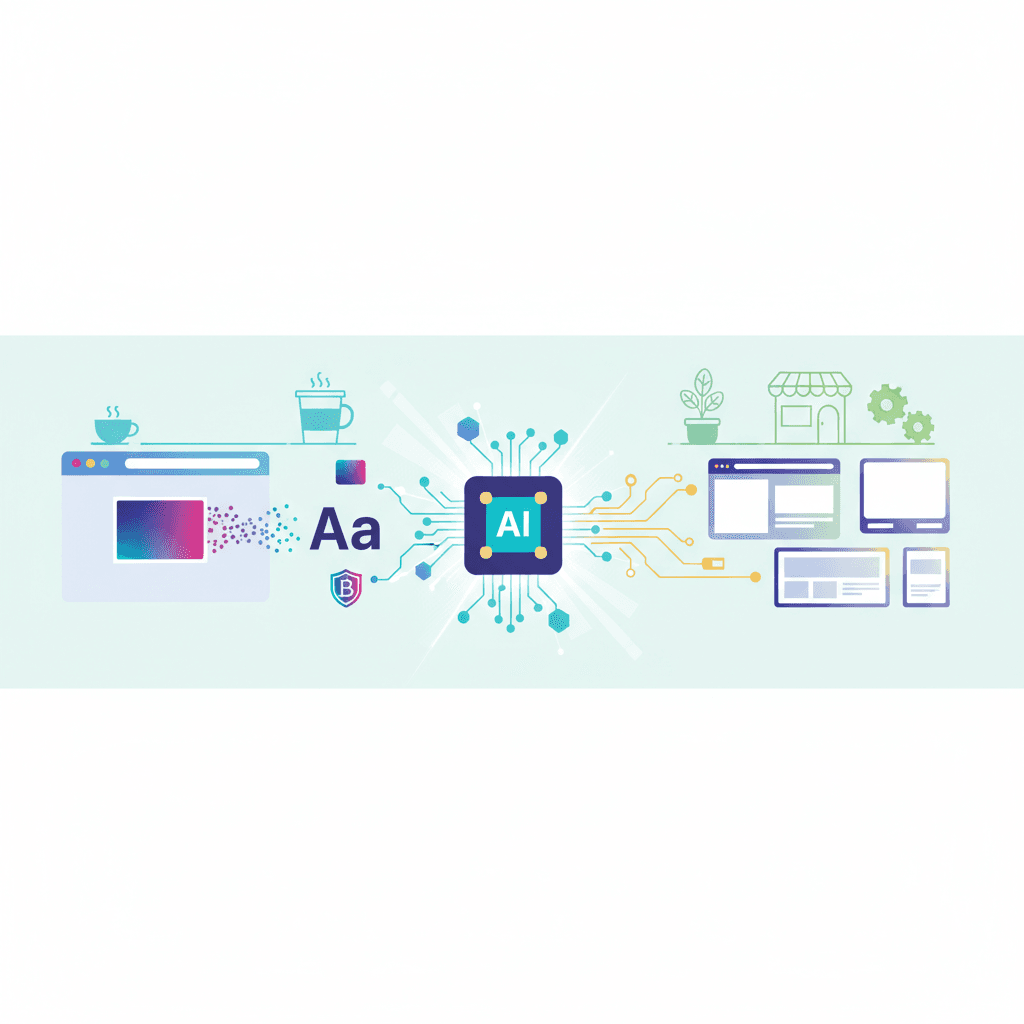Google's Pomelli AI Creates Complete Marketing Campaigns for Small Businesses
Google’s DeepMind-powered Pomelli analyzes websites to create complete, on-brand marketing campaigns for SMBs, revolutionizing their digital presence.
October 29, 2025

In a significant move to automate digital marketing, Google has launched Pomelli, an experimental artificial intelligence tool designed to create complete social media and marketing campaigns for small and midsize businesses (SMBs).[1][2][3][4] Developed through a collaboration between Google Labs and the company's renowned AI research division, DeepMind, Pomelli aims to eliminate major barriers for smaller companies, such as budget constraints, lack of time, and limited design expertise.[2][5] The tool operates on a simple yet powerful premise: by analyzing a company's existing website, it can learn a brand's unique identity and generate a suite of on-brand marketing materials, effectively acting as an automated marketing department.[4] This launch positions Google to compete directly with established players in the design and marketing automation space, such as Canva and Adobe, signaling a deeper push into AI-powered creative services.[3][5]
The core of Pomelli's functionality lies in its "Business DNA" analysis mechanism.[1][2][5] With just a single URL input, the tool's deep learning algorithms scan and parse a business's website to construct a comprehensive brand profile.[1][6] This process automatically extracts key brand elements including specific color palettes, custom fonts, imagery styles, and the overall tone of voice used in the site's text.[1][2][3] This automated brand cloning bypasses the traditionally cumbersome process of manually uploading brand guidelines and asset libraries.[1][6] Once this "Business DNA" is established, the platform moves to the second stage: idea generation. Pomelli suggests a variety of tailored marketing campaign ideas and creative angles, addressing the common challenge of "creative block" that many small business owners face.[1][6] Users can select from these AI-generated suggestions or input their own custom prompts to guide the content creation process.[1][5][6]
Following the ideation phase, Pomelli generates a range of ready-to-use marketing assets. These can include social media posts, website banners, ad creatives, and corresponding captions, all optimized for compatibility across multiple channels.[1][7][5] A crucial feature of the platform is its support for interactive, real-time editing.[1] Users are not locked into the first draft; they can use built-in editors to modify text or adjust images with natural language commands, ensuring the final output perfectly aligns with their vision and maintains brand consistency.[1][2] This three-step process—analyzing brand identity, generating ideas, and creating editable assets—is designed to drastically reduce the content production cycle from hours or even days to mere minutes, making professional-quality marketing accessible without a dedicated design team or a large budget.[3][6][4]
The introduction of Pomelli carries significant implications for both the marketing industry and the broader AI landscape. For SMBs, it offers a powerful tool to level the playing field, providing access to scalable, AI-driven marketing solutions that were previously out of reach.[3] However, the increasing automation of creative tasks raises questions about the future of marketing jobs.[8][9] While some experts argue that AI will handle repetitive, lower-tier tasks like basic content creation, freeing up human marketers to focus on higher-level strategy, creativity, and building authentic audience relationships, others voice concerns about the potential displacement of roles, particularly for junior copywriters and designers.[10][11][8][9] There are also concerns about the potential for AI-generated content to become generic or homogenized, potentially eroding brand trust if not carefully managed by human oversight.[3][10] Furthermore, while Google states Pomelli only analyzes publicly available website data, the increasing use of AI in marketing continues to fuel discussions around data privacy and the ethical use of business information to train AI models.[1][3]
Pomelli's launch is a clear reflection of Google's broader strategy to integrate its advanced AI research, particularly from DeepMind, into practical, consumer-facing products.[5][12] It joins a growing suite of Google's AI-powered creative tools, demonstrating the company's ambition to become a central player not just in advertising distribution but also in the content creation process itself.[13][14][15] By potentially integrating Pomelli-created assets directly into the Google Ads ecosystem, the company could create a seamless pipeline from content generation to advertising campaign launch, a powerful advantage in the competitive MarTech space.[5][4] As the tool evolves from its current public beta—initially available in the U.S., Canada, Australia, and New Zealand—its development will be closely watched.[16] The success of Pomelli could fundamentally reshape how millions of small businesses approach their digital marketing efforts and further solidify generative AI's role as a transformative, albeit disruptive, force in the creative industries.[6]
Sources
[1]
[2]
[5]
[6]
[8]
[10]
[12]
[13]
[14]
[15]
[16]